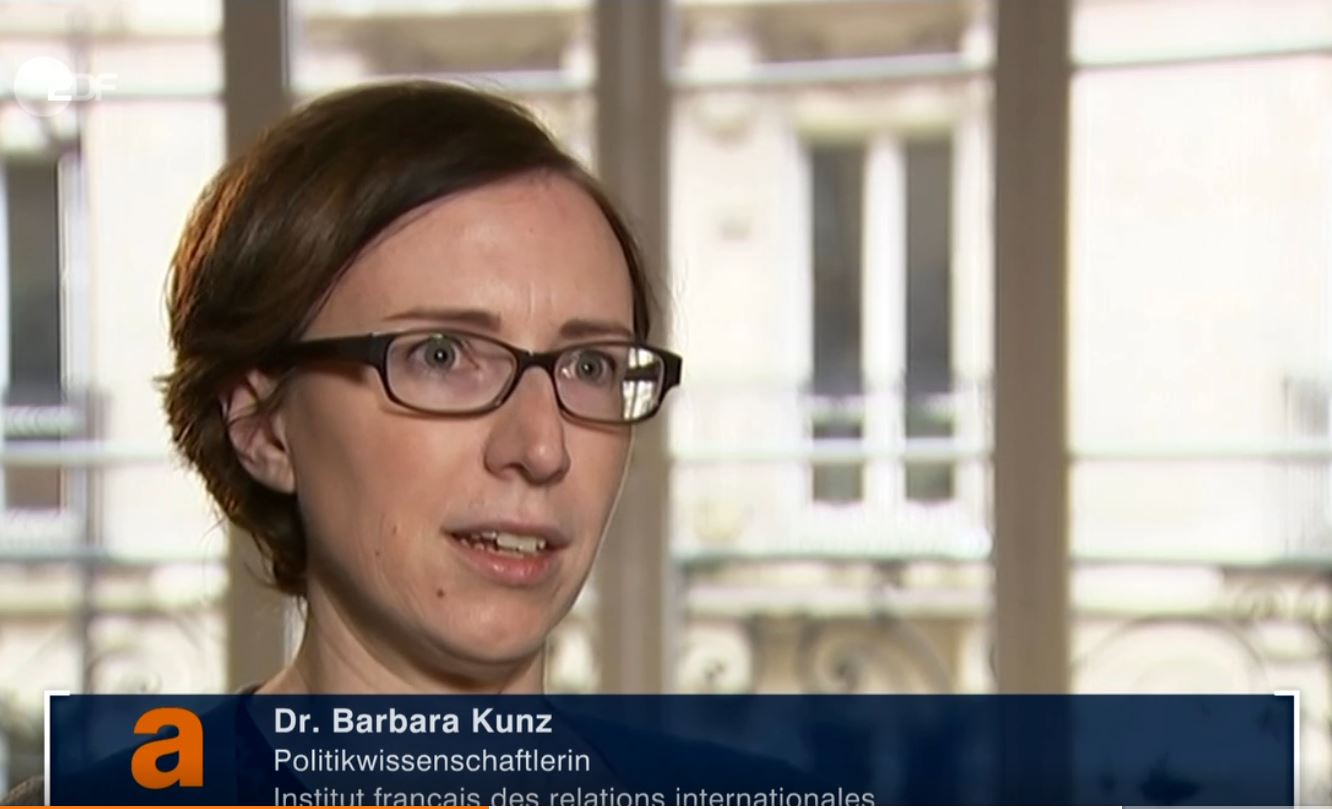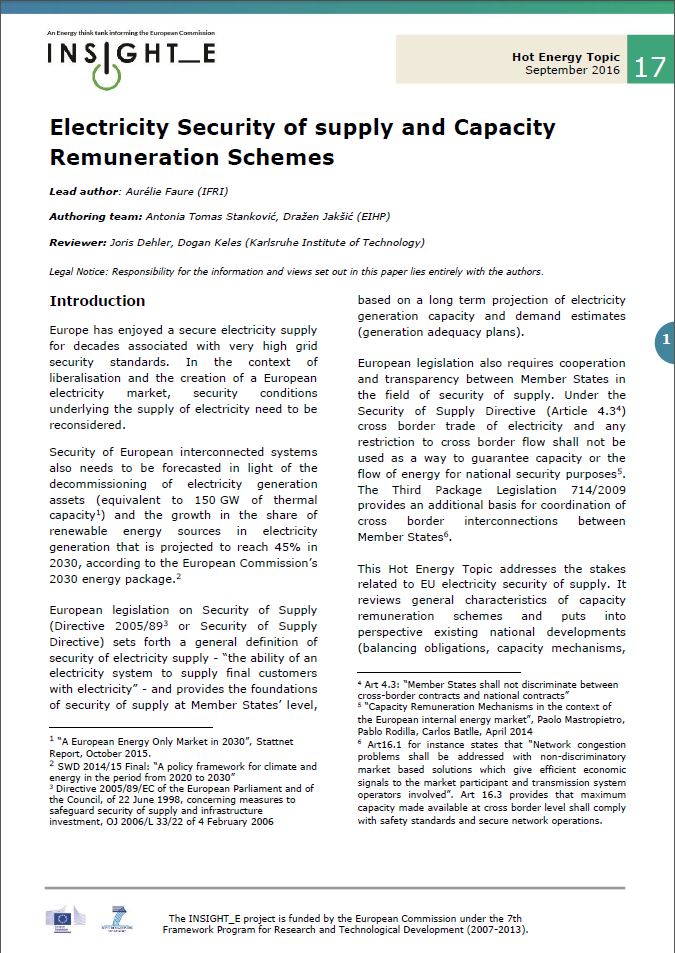
Democratic Deconstructions
Today’s democratic governments appear less legitimate and their longevity less assured than ever.
EU Leaders Meet in Versailles to Hash Out Bloc’s Future
Four top European leaders hold talks Monday on the future of the European Union, at a time when it faces multiple crises that are sparking doubts about its very existence. Hosted by French President Francois Hollande at the iconic Versailles palace outside Paris, the dinner meeting that brings together German, Italian and Spanish leaders comes amid heated discussion about how to move forward the deeply troubled European Union in the face of Brexit, rising nationalism and an EU-skeptic Trump administration in Washington.


The fight for the Elysée ...and for Europe
On Germanys second channel, ZDF, Barbara Kunz enlarges upon the French presidential election in May.
Cyber Attacks and Energy Infrastructures: Anticipating Risks
This study analyses the likelihood of cyber attacks against European energy infrastructures and their potential consequences, particularly on the electricity grid. It also delivers a comparative analysis of measures taken by different European countries to protect their industries and collaborate within the European Union.

Making Sense of Europe’s Southern Neighbourhood: Main Geopolitical and Security Parameters
Europe’s southern neighbourhood is a diverse but interlinked geopolitical ensemble, whose specificities need to be carefully assessed before Europeans devise dedicated security strategies, divide responsibilities and make policy decisions.
Europe after the Brexit: German positions and perspectives
The British decision to leave the European Union comes at a critical moment for Germany and the EU. It exacerbates the “polycrisis” of recent years and leads to controversial questions: What should the EU look like without Great Britain? What is the objective, the “finality”, of European integration? And what role should Germany play in the future?
The Energy Sector Implications of Brexit
On June 23rd, the UK voted 51.9% to 48.1% to leave the European Union. While the referendum outcome was not legally binding, the broad political consensus that has since emerged across both Remain and Brexit camps has been that the will of the majority must be upheld. So while the UK leaving the EU could be considered inevitable, and has continued to be reinforced with the political mantra of ‘Brexit means Brexit’, it is not clear what this exit will look like.

The Mediterranean: a Sea of Crises?
The Mediterranean is currently an intersection of upheavals and crises. Destabilization on its southern shores, uncontrolled migrations, simmering hostilities in the east surrounding exploitation of energy resources, military presence of all the great world powers (from Washington to Beijing, and Moscow of course), and increasing assertion of regional powers…
The European Neighbourhood Policy: A Bureaucratic Phoenix?
Facing turmoil on its eastern and southern borders, the European Union has sought some answers by revising its European Neighbourhood Policy and releasing a reviewed Global Strategy on Foreign and Security Policy. Beyond these documents, what is the real impact of the EU in its neighbourhood?

Electricity Security of Supply and Capacity Remuneration Schemes
In the context of liberalisation and the creation of a European electricity market, security conditions underlying the supply of electricity need to be reconsidered.
Support independent French research
Ifri, a foundation recognized as being of public utility, relies largely on private donors – companies and individuals – to guarantee its sustainability and intellectual independence. Through their funding, donors help maintain the Institute's position among the world's leading think tanks. By benefiting from an internationally recognized network and expertise, donors refine their understanding of geopolitical risk and its consequences on global politics and the economy. In 2024, Ifri will support more than 70 French and foreign companies and organizations.










